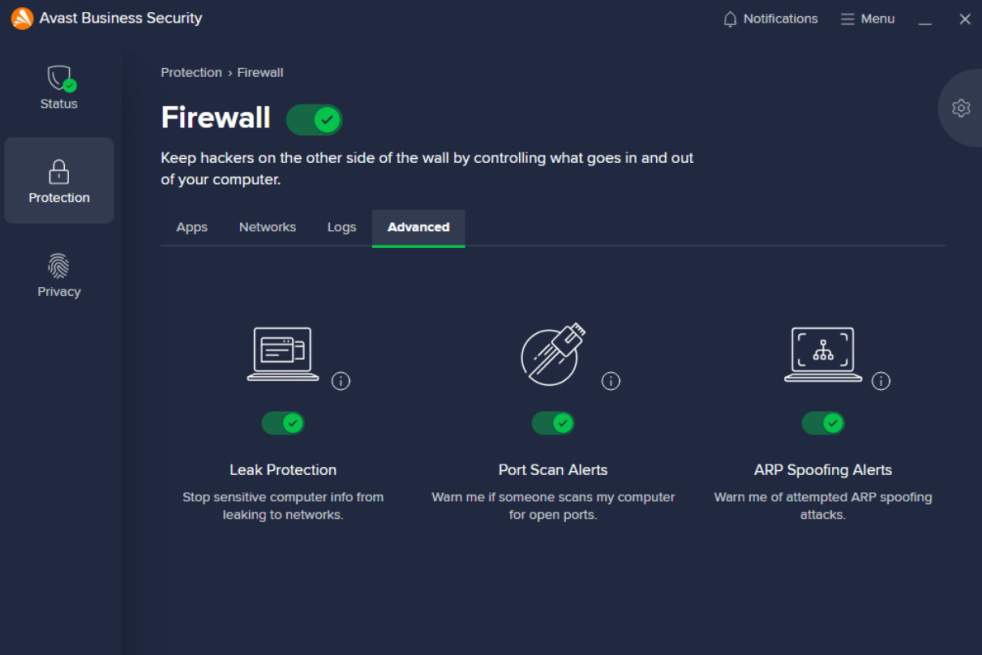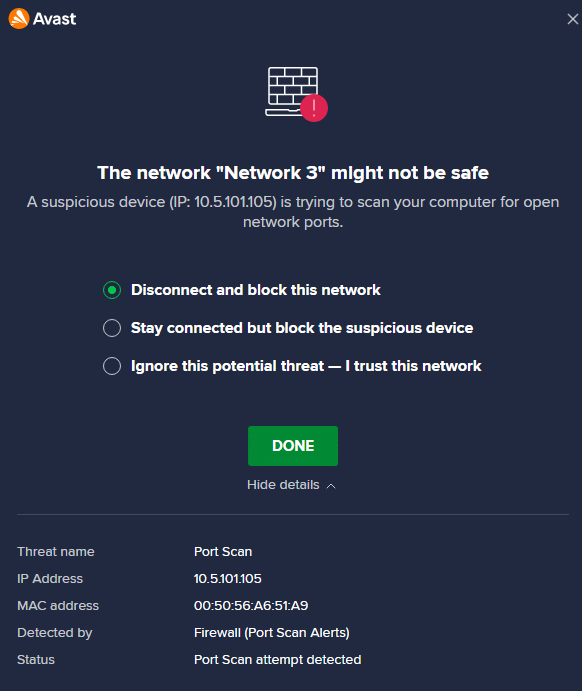PROXIMANOVA-LIGHT.OTF PROXIMANOVA-LIGHTIT.OTF PROXIMANOVA-EXTRABLD.OTF PROXIMANOVA-BOLD.OTFPROXIMANOVA-BLACK.OTF
Get this font in here!
This Article Applies to:
- Avast Small Business Solutions
- Avast Small Office Protection
- Avast Business Antivirus
- Avast Business Antivirus Pro
- Avast Business Antivirus Pro Plus
- Avast Business CloudCare Antivirus
The advanced Avast firewall features, first introduced in the Antivirus version 21.11, can be viewed and managed in the Protection > Firewall > Advanced section of the Avast Business client UI.

Here, you can use the toggles to enable/disable the following features:
- Leak Protection: Helps protect the device from leaking potentially sensitive data by enabling packet rules to block certain types of communication.
- Port Scan Alerts: Warns about detected hacker and/or malware attempts to scan the device for open ports.
- ARP Spoofing Alerts: Warns about detected attempted Address Resolution Protocol spoofing attacks (when an attacker exploits the ARP to trick a device into communicating with an external device controlled by the attacker).
When Port Scan and ARP Spoofing alerts are enabled, the detection dialogs will offer the following options to the user:
- Disconnect and block this network (recommended): Immediately disconnects from the current network and blocks any future connections to it. The Blocked message is displayed next to this network on the Network screen in Firewall settings.
- Stay connected but block the suspicious device: Remains connected to the network while blocking the external device conducting ARP spoofing. This allows continued internet usage but is not recommended due to potential additional threats on the network. Blocked devices can be managed in the Firewall settings.
- Ignore this potential threat — I trust this network: Takes no immediate action. It is not recommended unless the user is certain about the network's security.

Note that the advanced Firewall features are only activated in public (untrusted) networks.
Other Articles In This Section:
Related Articles: